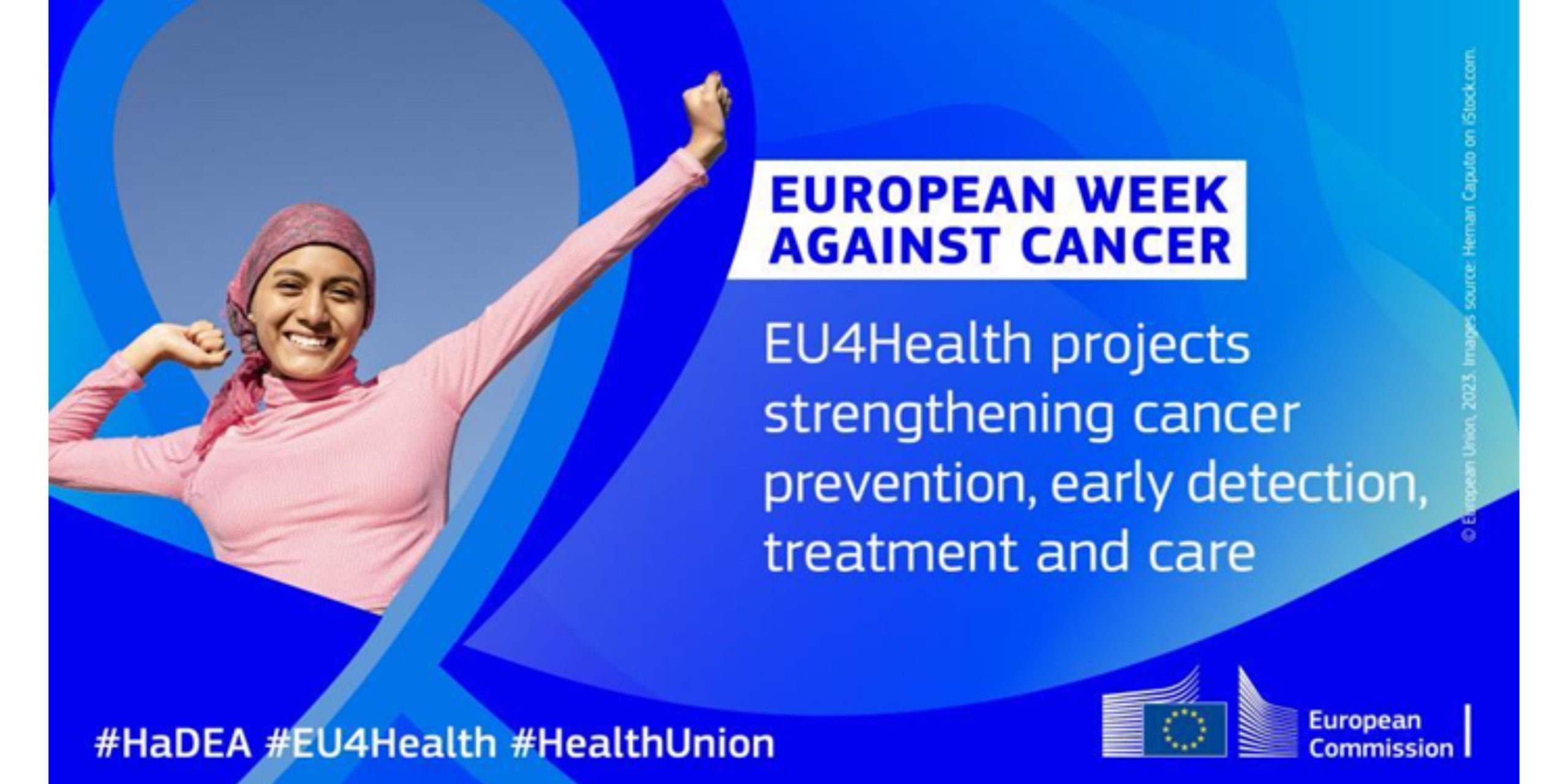The European Week Against Cancer (EWAC) runs between 25 and 31 May each year to promote awareness on cancer prevention, access to treatment and support to patients and persons with a history of cancer.
The week focuses on seven themes, namely primary prevention, early detection, cancer research, access to treatment, patients & survivors, digital health, and tobacco control.
The European Commission considers the fight against cancer one of its top health priorities. Europe’s Beating Cancer Plan and the EU Mission on Cancer are the EU’s response to growing challenges and developments in cancer.
Under the EU4Health programme, HaDEA manages projects, that are supporting EU countries in their work on cancer prevention, early detection, diagnosis and treatment and patients’ quality of life.
To mark the Week, the Directorate-General for Health and Food Safety (DG SANTE) has organised a webinar to showcase some of the projects:
ECAC5
The 5th edition of the European Code against Cancer (ECAC5)aims to revise and update the present European Code against Cancer using the emerging scientific evidence of the past decade as well as current policy recommendations.
BUMPER
The Boosting the Usability of the EU Mobile App for Cancer Prevention (BUMPER) project aims to design, develop and promote the EU Mobile App for Cancer Prevention. The app will use the European Code Against Cancer (ECAC) to communicate clear and accessible evidence-based information on the risk factors of cancer.
CanScreen-ECIS
CanScreen-ECIS aims to develop and pilot a new cancer screening data management system to be integrated into the existing European Cancer Information System (ECIS). The project will refine existing cancer screening indicators and will suggest new ones for breast cancer, cervical cancer, colorectal cancer, and lung cancer. The project will create a freely accessible online learning package on new data collection and submission systems.
Joint Action JANE
The Joint Action on Networks of Expertise (JANE)aims to establish seven new EU Networks of Expertise in the following fields: complex and poor prognosis cancers, palliative care, survivorship, personalised primary prevention, integration of ‘omic’ technologies*, hi-tech medical resources and young adults with cancer.
INTERACT-EUROPE
The Innovative collaboration for Inter-specialty cancer training across Europe (INTERACT-EUROPE) aims at developing an inter-specialty cancer training programme involving all main oncology disciplines and professions, cancer centres and patient groups in the EU.
Joint Action e-CAN
The Joint Action on strengthening eHealth including telemedicine and remote monitoring for health care systems for cancer prevention and care (e-CAN) aims to reduce cancer care inequalities across the European Union and improve the effectiveness, efficiency and quality in cancer prevention and care, particularly during health emergencies. It will do so by providing recommendations for the integration of telemedicine and remote monitoring in health care systems.
EU-CAYAS-NET
The European Network of Youth Cancer Survivors (EU-CAYAS-NET) aims to improve the quality of life of young cancer survivors by creating a knowledge centre and interactive platform for social networking. The European network will bring together patients, caregivers, health professionals, organisations, non-governmental organisations (NGOs) and cancer care institutions.
The initiative has developed the platform #beatcancer – an interactive hub where young people with cancer can get answers and exchange with others.
BACKGROUND
EU4Health is the fourth and largest of the EU health programmes. The programme provides funding to national authorities, health organisations and other bodies through grants and public procurement, contributing to a healthier Europe.
HaDEA manages the vast majority of the total EU4Health budget and implements the programme by managing calls for proposals and tenders from 2021 to 2027.
Source: European Commission | European Health and Digital Executive Agency (HaDEA) (https://rb.gy/ftw26)
